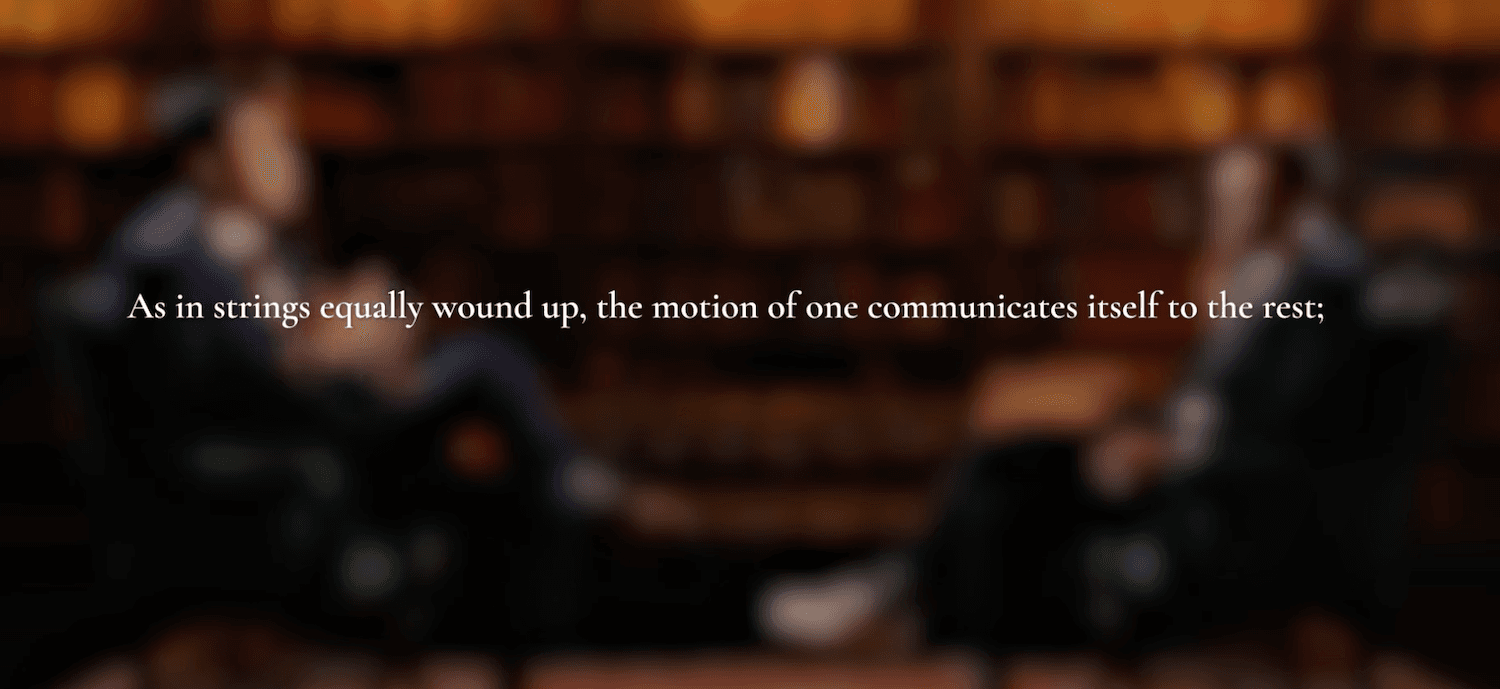René Girard's Mimetic Theory - Lecture 2
Curated from: Johnathan at Limbo
Ideas, facts & insights covering these topics:
8 ideas
·1.22K reads
14
3
Explore the World's Best Ideas
Join today and uncover 100+ curated journeys from 50+ topics. Unlock access to our mobile app with extensive features.
Mimetism as the Strings of a Violin
Mimetism was not Rene Girard original idea. It can be traced to David Hume who observed one's actions reverberates to the rest like the strings of a violin. It describes humans as a social specie, prone to co-vibrations aka under the influence of other people's actions.
- Mimetism is a social technology to get to the subjectivity of others. But ...
- Mimetism is a tendency, but also a capacity. It leaves room for individual agency. At any time, you, the player, can choose the next string to pluck.
14
271 reads
Normative Evolution, Prestige and Gods
The basic mimetic behaviour manifests in society in more meaningful ways:
- Through prestige. The respect, admiration, and high regard that is accorded to someone has less to do with the objective qualities of the person and more with the adherence to normative values.
- A step higher is the real of the sacred. For Girard this is just a dial up of mimesis. The power of a sacred relic lies just with the collective admiration that one feels compelled to mimic. Gods live only as long as there are rituals of belief.
15
173 reads
Mimesis is both the strongest and necessary authority for us to hold normative values. It more than any faculty decides what we think of beautiful, as good ... what laws we think of just or what sexual relationships we think of as legitimate or depraved. Even what we strive to be like.
JHONATHAN BI
13
144 reads
The 2 twin components of mimetic desire
Mimetic desire can be separated in:
- a desire to experience (physical desire)
- a desire to be (metaphysical desire). We chase objects for what they say about us on for the fullness of being that we expect them to confer upon us.
ex: We may chase a sexual partner for how they make us feel or for the social status of being with them. We may start a company for the thrill of the struggle or because we want to be like like the Silicon Valley tech bros.
The balance of the 2 will vary from person to person, but pride and ambition are strongly correlated with metaphysical desire.
13
141 reads
The 3 Components of Being
Metaphysical desire is focused on our identity, our ego, our spirit ... the core of what we are. This itself can be broken down into 3 components:
- Reality. We want our existence to be observed and noticed by others. What really matters is not the physical experience but what others think it's real.
- Persistence. We want our identities to last through time. We are obsessed with achieving some immortality.
- Self-sufficiency: Deals with having the power of the social realm to fulfil our thirsts. It's what Nietzsche calls "the will to power". It has a lot to do with domination over others.
14
124 reads
The Faulty logic of Object Acquisition
We crave objects because other people we look up are associated with those objects: a celebrity, a parent, a colleague etc... The faulty logic being that our acquisition of the object will grant us the same sense of being as our role-model.
Desire is not a straight line from subject to object, but a triangular path to object through the role model.
16
119 reads
The Power of Metaphysical Desire
Not all our actions will be motivated by metaphysical desire, but out of the possible motivations ... it is the strongest. In commercial terms it means products that focus on it will command the most value.
It explains the success of branding, the celebrity culture and consumerism as a whole.
13
128 reads
The 4 Qualities of Metaphysical Desires
- Malleability. They are highly dependent on our mediators. If I grew up with a Don Juan father I may seek superficial relationship.
- Power. The more we get motivated by it the more we loose our agency. The tulip buying mania, the 2001 dotcom crash etc.
- Deceitful: We are oblivious that we are confusing an object for a state of being.
- Ungovernable: It is not ruled by reason. Reason becomes a spoke-person to our spirit. Not the source of action, but its justification.
13
120 reads
IDEAS CURATED BY
Life-long learner. Passionate about leadership, entrepreneurship, philosophy, Buddhism & SF. Founder @deepstash.
CURATOR'S NOTE
The second part of the lecture on Girard. More in depth look at desires.
“
Vladimir Oane's ideas are part of this journey:
Learn more about religionandspirituality with this collection
The power of gratitude and positive thinking
Ways to improve your mood
Simple daily habits for a happier life
Related collections
Similar ideas
8 ideas
3 ideas
Jordan Peterson with Robert Breedlove discussing fiat & bitcoin
Robert Breedlove
7 ideas
99 - Endgame | Vitalik Buterin
Bankless
Read & Learn
20x Faster
without
deepstash
with
deepstash
with
deepstash
Personalized microlearning
—
100+ Learning Journeys
—
Access to 200,000+ ideas
—
Access to the mobile app
—
Unlimited idea saving
—
—
Unlimited history
—
—
Unlimited listening to ideas
—
—
Downloading & offline access
—
—
Supercharge your mind with one idea per day
Enter your email and spend 1 minute every day to learn something new.
I agree to receive email updates





